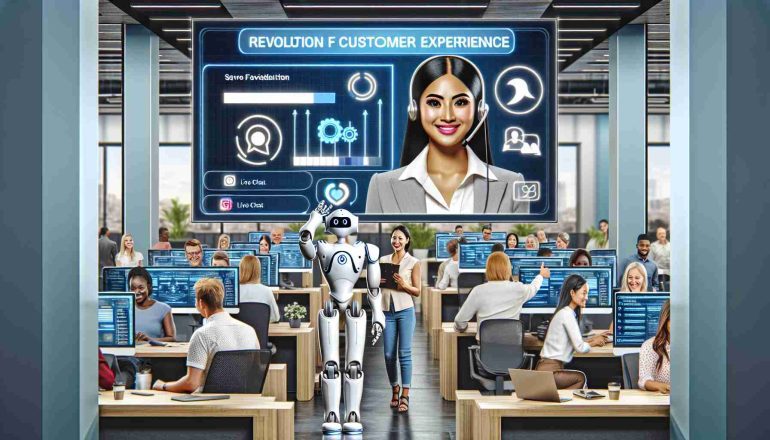- Businesses are moving from traditional marketing to highly personalized, technology-driven customer experiences.
- Data analytics and AI are crucial for understanding and customizing customer interactions.
- Integrating technology with human touchpoints is essential for effective customer service.
- Collaboration within companies and with external partners is vital to meeting customer needs efficiently.
- Post-sales care is becoming more critical for building lasting customer trust and loyalty.
- The focus is on creating diverse experiences catering to changing consumer preferences for a competitive advantage.
Main AI News:
As businesses adapt to the digital era, they fundamentally transform customer experiences. The shift from traditional marketing strategies has ushered in a new age of personalized interactions driven by advanced technologies.
Today, companies are leveraging data analytics and AI to turn insights into tailored customer experiences. In a competitive market, understanding consumer behavior at a deep level is not just beneficial—it’s crucial. However, the real challenge lies in seamlessly integrating technology with human interaction, ensuring that customer services resonate on a personal level.
To deliver exceptional experiences, businesses must build a cohesive ecosystem that fosters strong internal collaboration and effective partnerships. This interconnected network is essential for meeting customer demands efficiently and promptly. Beyond the point of purchase, post-sales care plays a vital role in building trust and loyalty, as customers now expect genuine support and reliability long after a transaction is completed.
In the current Experience Economy, the focus has shifted from merely offering products or services to creating experiences that cater to diverse consumer preferences. Anticipating and understanding evolving customer needs can give brands a significant competitive advantage.
As companies navigate the complexities of the digital landscape, revolutionizing customer engagement remains a critical goal. By effectively blending personalization with technology, addressing the challenges of data privacy and integration, and maintaining the human touch, businesses can lead the way in transforming customer experiences.
Conclusion:
The market is shifting significantly as businesses increasingly prioritize personalized, tech-enhanced customer experiences. This trend highlights the growing importance of data-driven insights and AI in understanding consumer behavior and delivering tailored interactions. Companies that successfully blend technological capabilities with human-centric service will likely lead the market, setting new standards in customer engagement. As the emphasis on post-sales care and seamless service continues to rise, brands that excel in these areas will gain a substantial competitive edge, shaping the future of consumer relationships in the digital era.

